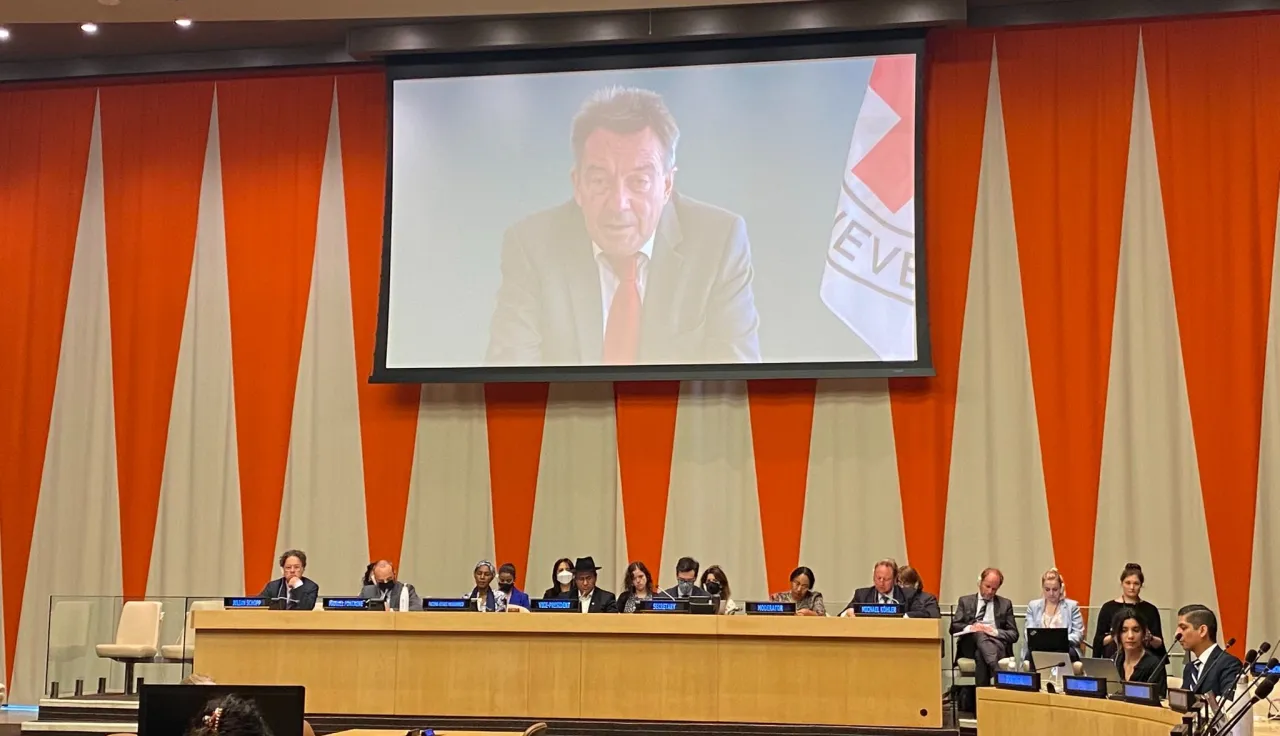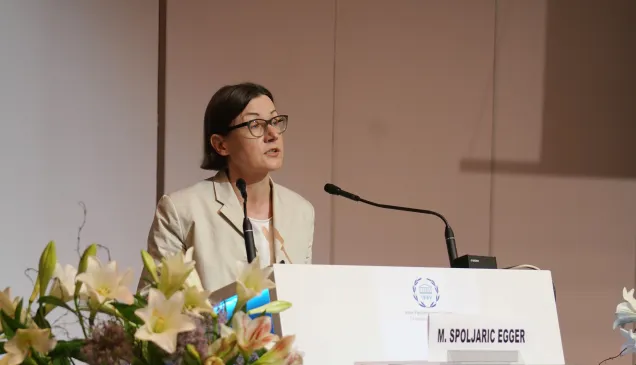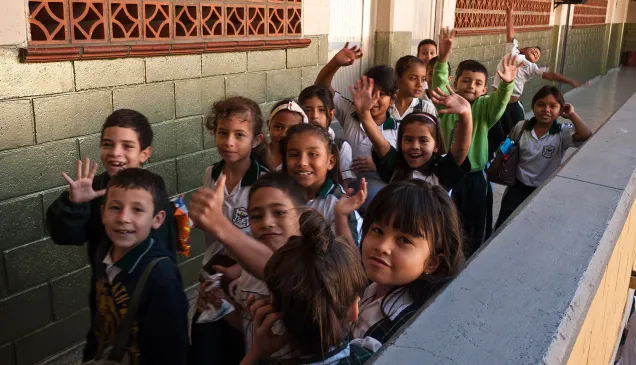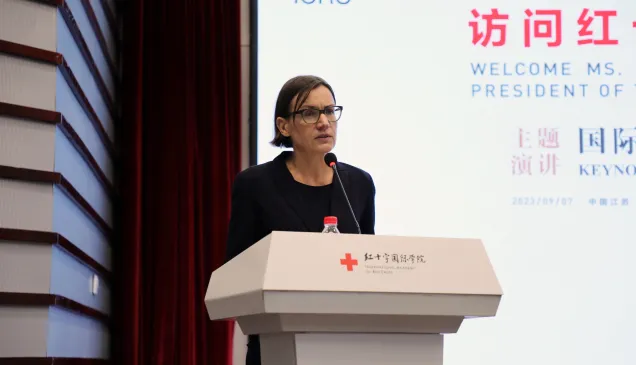Mr. President, Distinguished Delegates,
I am grateful for the opportunity to address you: the topic of this panel is extremely timely as humanitarian organizations continue to face multiple challenges in armed conflicts - both old and new.
With operations in over 80 countries, ICRC sees these challenges up-close daily. In response we have developed good practices to address issues related to humanitarian access and delivery, and to enhance respect for international humanitarian law.
Importantly: IHL is a living body of law, designed to provide guidance on the gritty realities of war. It can only play its role if it is accompanied by efforts to change behaviour. To assist belligerents to understand their obligations, the ICRC maintains dialogue with the police and armed forces, as well as more than 460 non-state armed groups, in over 110 countries worldwide.
The ICRC has recently published a comprehensive document outlining the 12 key challenges for IHL. The report outlines the practical steps that States can take in areas such as: missing persons, new technologies of war, gender and climate shocks. Now, more than ever, it is critical that States take bold steps to respect IHL and to mitigate the harm to civilians caught in conflict.
I would like to offer some suggestions on how to navigate these difficult challenges, which are compounded by the climate crisis, the COVID-19 pandemic and the global ripple impacts of the armed conflict in Ukraine.
Firstly, increasingly, wars are fought in cities. In the past few years, we have seen the appalling human cost when explosive weapons with a wide area impact are used in populated areas. Countless people have lost their lives or have been injured.
Civilian infrastructure is also destroyed: hospitals, schools, water, sanitation and electricity systems. This also includes food systems, as conflicts disrupt supply chains and markets.
Here is our first ask: States must take preventative and mitigation measures, working individually and collectively, to implement drastic restrictions and limitations on the use of explosive weapons in populated areas, including to avoid their use.
The ICRC has offered some recommendations in a recent report on EWIPA based on a decade of analysis of their devastating consequences. Additionally, against the backdrop of the urbanization of conflict, we also urge member states to operationalize and "take home" landmark SCR 2573.
Secondly, In recent years, armed conflicts have become more complex. Many States are involved in conflicts abroad, through partnered military operations or other types of support to belligerents.
These support relationships can increase humanitarian risks. When armed actors operate alongside each other in loose coalitions with unclear coordination, the lines of accountability can become blurred, and responsibilities are weakened. But properly directed influence can also make a positive humanitarian difference.
Therefore, our second ask is that Parties working in coalitions or support relationships, improve accountability and IHL compliance by implementing practical measures and oversight mechanisms. In short, you must hold each other accountable.
Thirdly, along with the first two developments, we have seen how misinformation, disinformation and hate speech are accelerating conflict dynamics and violence.
My third ask: We urge States and other relevant authorities to take all necessary measures to ensure that information or influence operations carried out in conflict settings are compliant with IHL and other rules of international law. These activities should not trigger or contribute to humanitarian consequences for affected people nor negatively impact the work of neutral, impartial humanitarian organizations.
Fourthly, We are seeing the increasing negative impact of sanctions and counter-terrorism measures on humanitarian aid. Such measures may curtail ICRC's ability to deliver humanitarian aid, visit persons being detained by listed groups, recover dead bodies, train armed groups in IHL, and facilitate mutual detainee swaps.
My fourth ask: States must limit the humanitarian impact of counter-terrorism measures and sanctions by putting in place well-crafted, standing humanitarian exemptions.
We acknowledge some positive developments, including through SCR 2615, which created a standing humanitarian exemption in the Taliban sanctions regime allowing the ICRC and others to continue to access vulnerable populations in Afghanistan. This serves as a model for sanctions regimes and we call on member states to continue to adjust their legislation to fully implement these resolutions.
Fifthly: It is critical that neutral and impartial humanitarian organizations are allowed to directly assess the needs of affected populations and maintain independent control over the distribution of assistance.
Our fifth ask is that access shall not be unlawfully denied or withheld. Member states should refrain from criminalizing or hindering the dialogue with parties to conflict. To the contrary, States have an obligation to facilitate the work of neutral, independent and impartial humanitarian actors such as the ICRC.
In conclusion Mr. President, dear colleagues, the ICRC will continue to engage constructively and transparently with state and non-state actors to facilitate humanitarian action. We need strengthened international cooperation and dialogue, enhanced respect for IHL and we count on the strong support of all member states.
Thank you.




